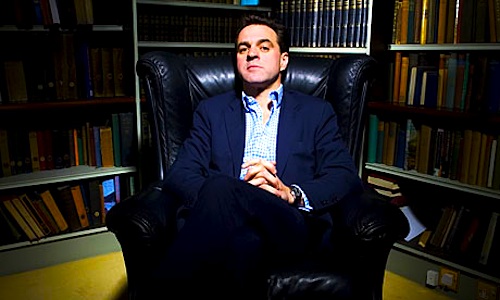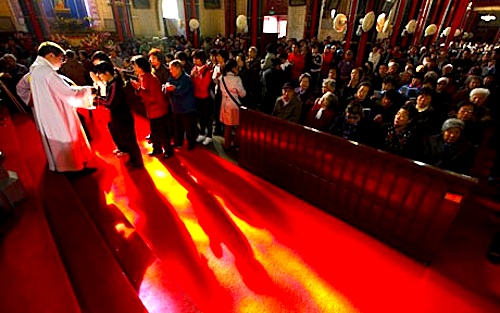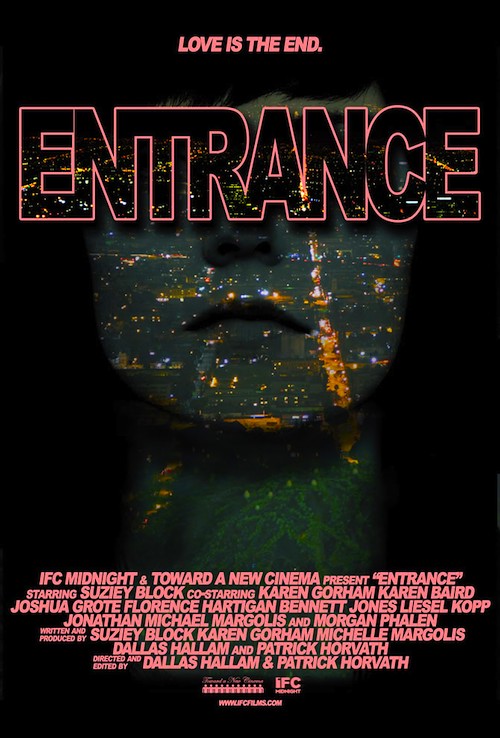Watch Civilization – Preview on PBS. See more from Civilization: The West and the Rest with Niall Ferguson.
By Joe Bendel. The Ottoman Empire’s decree banning printed type in 1483 was obviously a noteworthy historical event. According to economic historian Niall Ferguson, it was a particularly telling incident, emblematic of the increasingly sharp distinctions between the West and the rest of the world. Ferguson lucidly explains six key attributes or so-called “killer apps” contributing to the West’s ascendency for the last five hundred years or so – and pointedly asks if they are now beginning to shift to the East – in the two-part sweeping survey Civilization: The West and the Rest, adapted from his bestselling book of the same name, which airs the next two Tuesday nights on most PBS outlets nationwide.
One of Ferguson’s touchstone figures is a “Resterner” rather than a Westerner. During the reign of Emperor Yongle, the technologically advanced China was a relatively pleasant place to live, especially compared to the dismal conditions of Europe. However, Yongle’s successors would turn China’s focus inward, ceding the global stage to upstart Westerners. The West was well suited to capitalize because of those six killer apps: competition (first between grubby European city-states for prestige, and than in the more traditional capitalistic sense), science, democracy (particularly when coupled with widespread property ownership), modern medicine, democracy, and the work ethic.
While many of these might sound rather obvious, Ferguson puts each into a fresh perspective. Science would indeed seem like a glaring no-brainer, but not to the Ottomans. Just as the Catholic Church was relaxing its attitudes towards scientific inquiry, the Muslim religious authorities were taking an even harder line, including but not limited to the prohibition against type in favor of calligraphy.

Even when analyzing American history, the British historian offers some intriguing insights. Though public schools largely give short shrift to the founding of the Carolina Colony and the Fundamental Constitutions written by John Locke, Ferguson contends they represented an unprecedented opportunity for social mobility. In less than a decade, a despised member of the English underclass could bind himself into indentured servitude, receiving free and clear title to his own land holdings at the end of his term. As a property owning man, thereby entitled to vote, he became a fully vested member of the economic and political establishment.
While Ferguson largely avoids normative judgments, he makes time to critique what he dubs America’s “original sin,” slavery, and its bastard child, segregation. Yet, in keeping with his previous scholarship, Ferguson is more forgiving of European colonialism, especially with regards to the spread of modern medicine (in this case a kindly app) throughout Africa.
Of course, the central questions concerning Ferguson are whether the West still believes in its killer apps and if Resterners have developed better upgrades. This really comes to the fore during his discussion of the work ethic—the Protestant Work Ethic to be more precise. Here the Chinese are demonstrably outperforming the West, even America, by any standard of productivity. The real revelation, though, is the linkage Ferguson posits with the upsurge in Protestant religious observance in Mainland China. Ferguson’s observation: “today there may actually be more practicing Christians in China than in Europe” is a heavy statement rife with implications few are seriously grappling with. In no uncertain terms, China is identified as the Restern power to watch. Yet Ferguson never fully addresses the enormous disparities between the go-go coastal cities and the desperately poor rural villages, where consumerism and even modern medicine have yet to fully arrive.

Granted, Ferguson’s approach is somewhat anecdotal, but those stories are truly fascinating, more often than not. Naturally, compressing five hundred years into four hours will lead to odd allocations of focus. As a case in point, German sociologist Max Weber has at least twenty times more screen time than Lenin, Stalin, Hitler, and Bismarck combined. On the other hand, his scholarship withstands history’s scrutiny better than their ideologies.
Simultaneously erudite and telegenic, Ferguson is an almost chatty host, who could be accused of glossing over decades and even centuries with the wave of a hand. Yet he is dashed convincing, pulling viewers through his arguments, step by logical step. It all might sound dry, but it is surprisingly entertaining. Frankly, viewers will be rather sorry to see Civilization end, so to speak. Immensely timely and intellectually engaging, Ferguson’s Civilization is very highly recommended television. It begins this coming Tuesday (5/22) and concludes the following week (5/29) on most PBS stations.
Posted on May 19th, 2012 at 10:01am.

